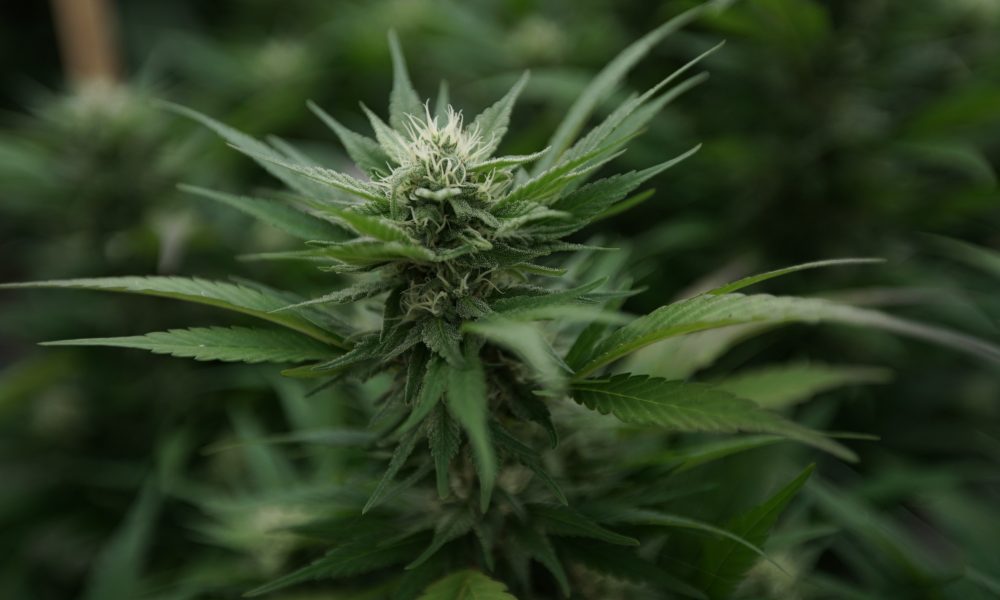“I don’t know what the endgame is, except to file to the end of time.”
By Alander Rocha, Alabama Reflector
A medical cannabis company embroiled in litigation with the Alabama Medical Cannabis Commission (AMCC) Friday filed a new motion for a preliminary injunction and a temporary restraining order, ahead of an AMCC meeting on Thursday.
Alabama Always, which sued the commission in June and August over alleged procedural inconsistencies and in July over the appointment of former chair Steven Stokes, alleged in the new filing that AMCC “repeatedly violated the [Alabama Administrative Procedure Act].”
The suit alleges that the commission did not comply with a requirement that applicants show they can start cultivating within 60 days and improperly changed rules with a scoring system and application guide.
“At its Oct. 13, 2022 meeting, the [AMCC] discussed the creation of ‘application guides’ containing a ‘scoring’ process that deviated from the statute and regulations,” the motion stated.
The new legal action comes as negotiations between AMCC and private companies over licensing to cultivate and distribute medical cannabis appear to have stalled.
Will Somerville, an attorney representing Alabama Always, said in an interview Monday afternoon that since plaintiffs submitted their proposal during negotiations, they haven’t heard back from the commission.
“I don’t know what they’re doing. So, have [negotiations] fallen through? I don’t know. Have they been ongoing? No. We made a proposal. We thought it was a fair one. And we haven’t heard anything from them since,” Somerville said.
AMCC Director John McMillan said over the phone on Monday that while the commission is leaving the negotiations to the lawyers, he’s not optimistic “about anything that’s going to make anybody happy.”
“I don’t know what the endgame is, except to file to the end of time,” he said.
The filing alleged that AMCC not only violated the Administrative Procedure Act by not publishing the rules, but the commission also did not provide a “notice-and-comment” period.
“Owing to the repeated miscues in the licensure process, the Compassion Act’s directive to get medical cannabis to the people who need it has been frustrated,” the motion stated. “The commission and its staff blame Alabama Always and other litigants for the delays, but the real blame lies with the Commission and its failure to follow the law.”
Montgomery Circuit Court Judge James Anderson in June blocked the state’s new medical cannabis program from going forward, in part over issues raised in Alabama Always’ lawsuits. The AMCC has since stayed the process on its own.
Somerville said that since he hasn’t heard from the commission in three and a half weeks, he wanted to get Alabama Always’s position on the record before the next meeting on Thursday.
“I don’t know what they’re doing,” he said.
The lawsuit filed Friday asked the Montgomery Circuit Court to impose an injunction to prevent the commission from relying on “illegal scoring system” used previously; require the AMCC to unredact all application information, except personal identifying information, personal financial information and legitimate trade secrets; require the AMCC to award licenses based on criteria set forth in the Compassion Act; and require the AMCC to enforce the Compassion Act’s requirement that licensees have obtained a $2 million performance bond.
“The only way to get the process back on track, and to ensure that medical cannabis is expeditiously made available to the people who need it, is for the court to order the Commission to dispense with the illegal scoring system, and instead award licenses according to the requirements of the Compassion Act and the Commission’s own regulations,” the motion stated.
The filing also alleged “inappropriate and excessive redactions,” which prevented “proper comparisons among applicants.”
“Many of the applicants, including some who received initial awards, heavily redacted their applications, hiding such critical information as their facility location, so that members of the Commission, other applicants, the press, and public could not verify whether they were actually able to satisfy the statutory and regulatory criteria,” according to the motion.
Somerville said issues with redactions had been brought up but said “it’s time to get the court to do that.”
“We think it would be good for other applicants, for the press and for the public,” he said, “to be able to see—does this applicant really have the ability to produce medical cannabis?”
It’s unclear whether AMCC will vote to award a third round of licensing on Thursday at the commission’s scheduled meeting. The commission canceled its September meeting because the counsel for AMCC and plaintiffs did not come to an agreement on a potential solution.
McMillan said Monday that the commission will have to determine what they will do on Thursday and “let the rest take care of itself.”
There are also filings from companies that were awarded licenses, some both times, that feel like they’re entitled to a license.
“We’re just going to have to sort it all out, and Judge Anderson will have a lot to do with that, and I got confidence in him,” McMillan said.
This story was first published by the Alabama Reflector.
Lone Democrat Who Opposed Marijuana Banking Bill In Senate Committee Explains His Vote
Photo courtesy of Chris Wallis // Side Pocket Images.
Read the full article here









